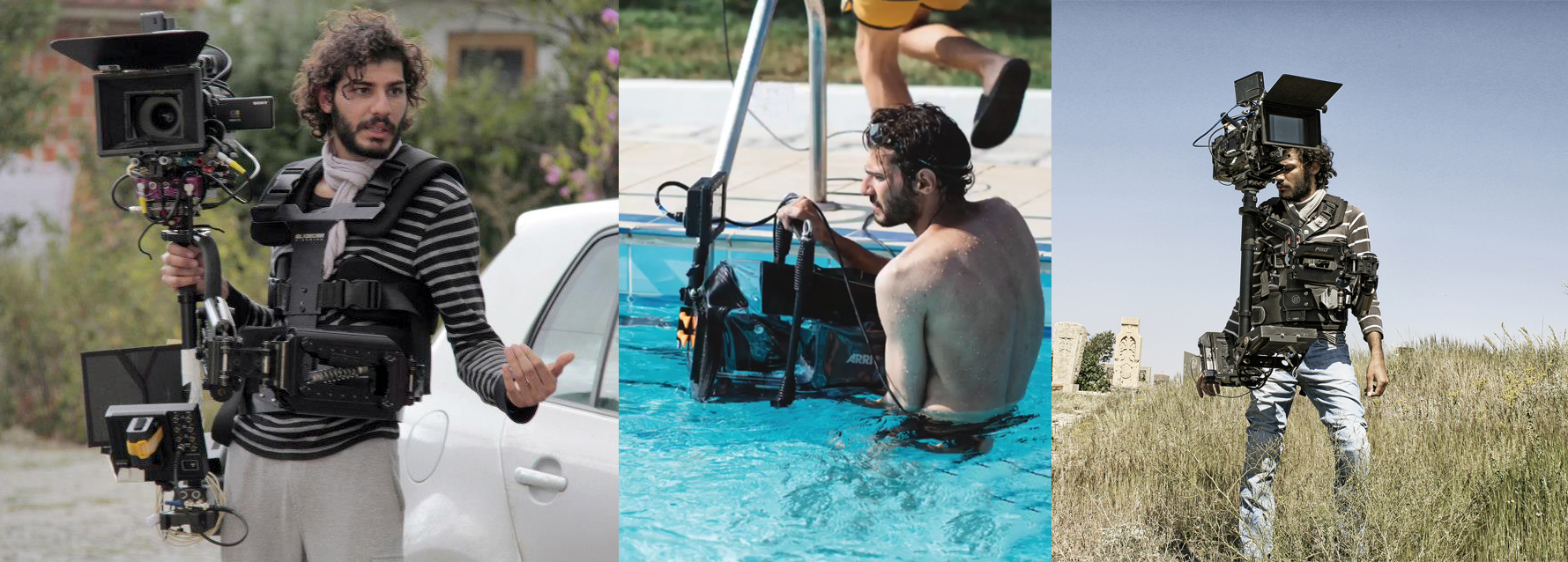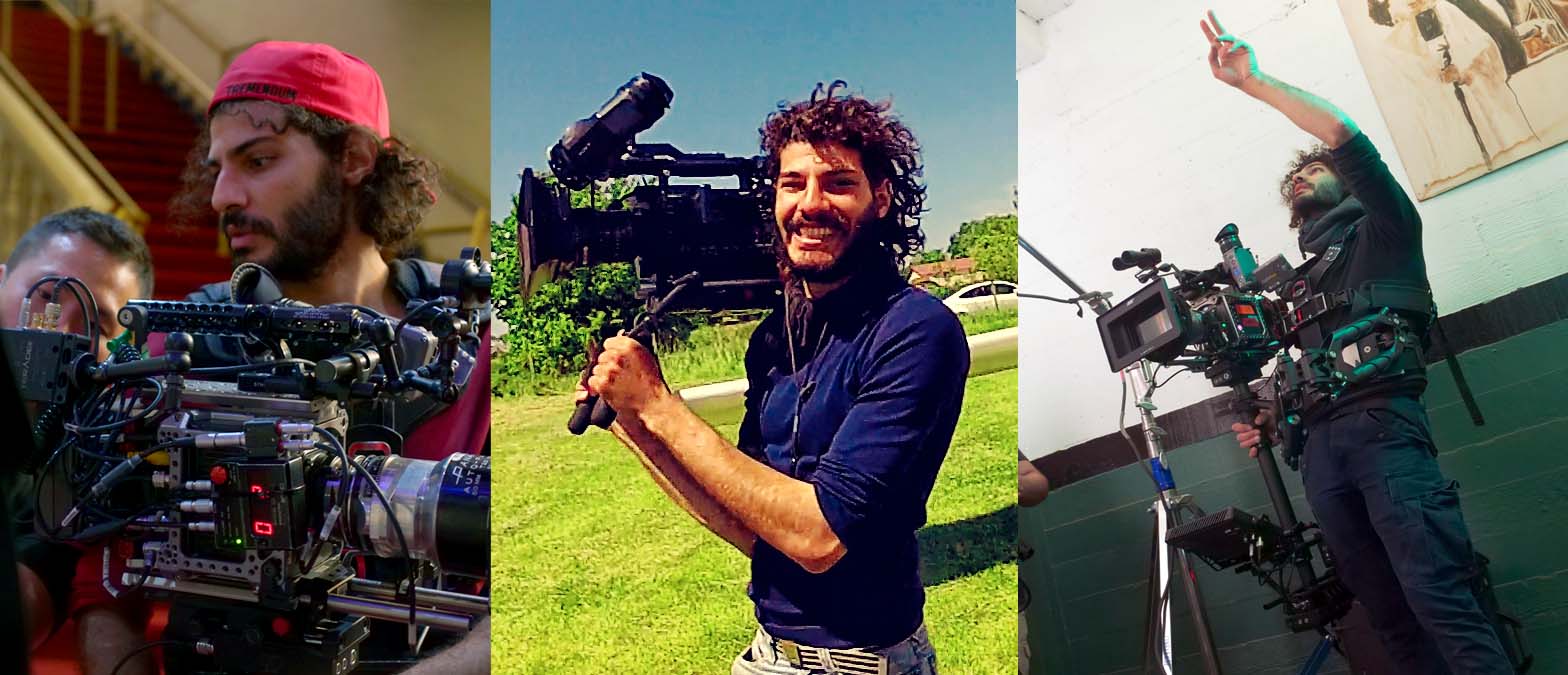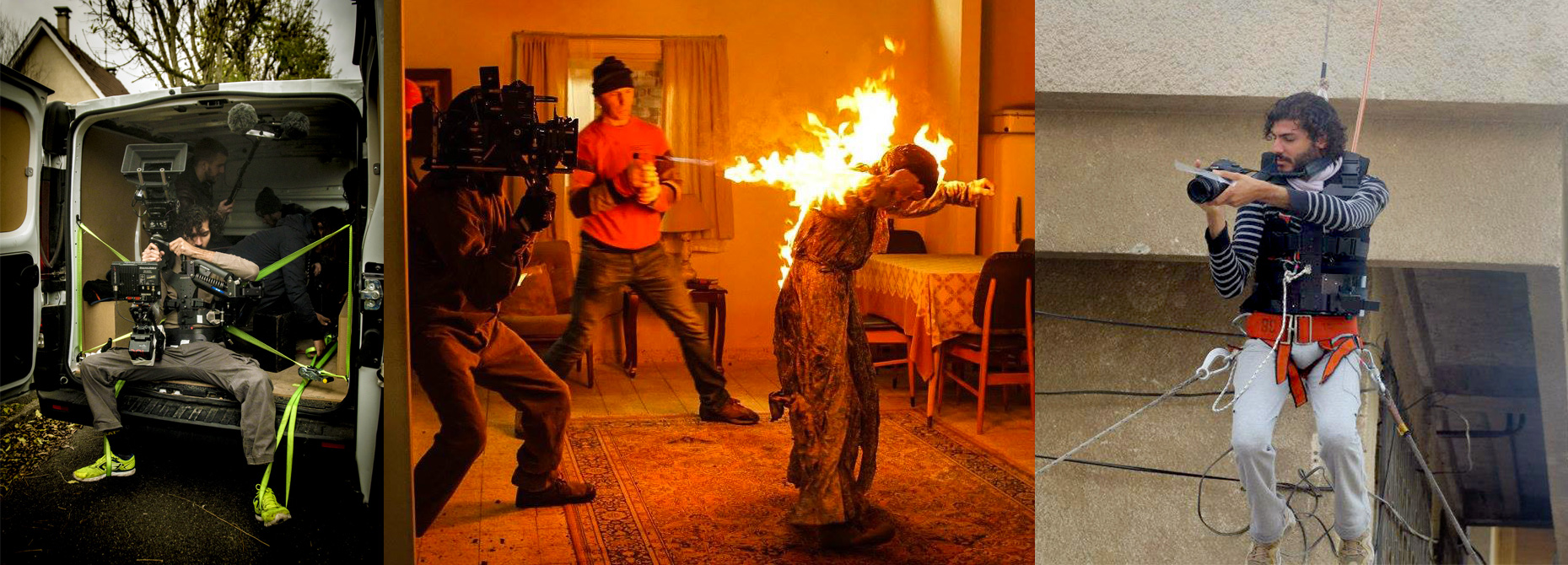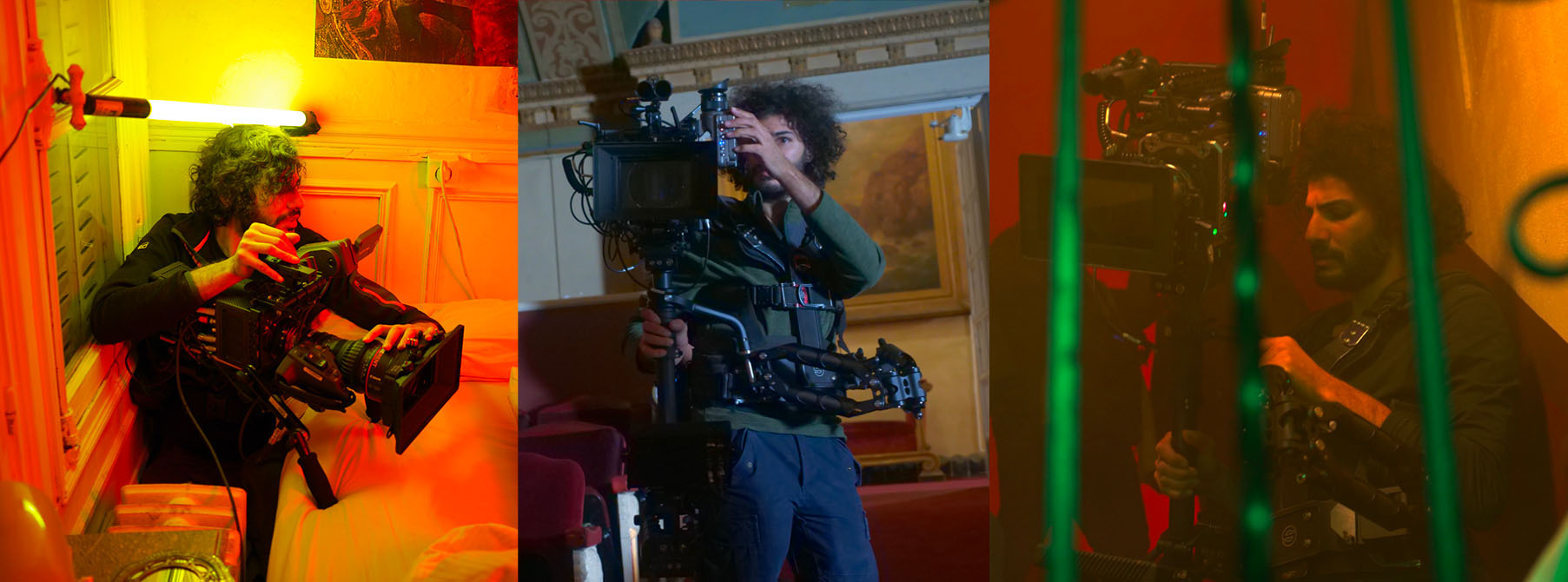Determination
Since I am 11, I decided I wanted to make movies. At 15 I knew I wanted to become a cinematographer.
With determination, I made that dream come true. I try to accomplish all the projects I work on in the best possible way.

Passion
I adore my job. It can be difficult, intense… but I keep considering it as a vocation. I love to work with a smile on my face. I try to avoid as much as possible toxic relationships at work.

Challenge
I love challenges. I don’t believe in simple projects. Every project contains problems that you must anticipate, identify and solve.

At your service
In my work, I love being at the service of a director, of a production, of a project. I only make propositions if I believe they serve the project. No ego involved.

Team work
This is not a work that I can do alone : the whole purpose is to work with a team. I love to exchange knowledge with other technicians, I love to learn from them.

I also think that communication is key : most of the problems on a shooting always come from a lack of communication.
I don’t like to do other people’s jobs. And I don’t like when other people try to do my job. A shooting is a space where everyone has a PRECISE task in order to serve the project.

Trust
I expect from the director and the producers a total trust, the same trust that I give them when I accept to work with them.

Esthetism
I don’t believe in esthetism for esthetism. I don’t think that doing pretty images makes an image “beautiful”.
A beautiful image is an image with a meaning, with a powerful content. I also believe that what is outside of the frame is even more important than what is inside the frame.
An image must contain an emotion, it must create a feeling for the audience, it must please their heart, not just their eyes.

Eclectism
I don’t like to be labeled. I don’t want to be locked in a certain style, a certain form, or a certain type of films. I love eclectism, I love to work with different directors, with different ways of seeing things, I love to explore new horizons.
I love to build bridges between fiction, documentary, commercials, music videos, or TV news, and I like to learn in every type of project I can work on.

Curiosity
I believe that we can make progresses only if we are curious about everything, and if we stay open-minded. I love to work in other countries, with local crews, learn their techniques.

« Cinematography », litterally, means « writing of the movement », and this is how I define myself: a writer of the movement. I strongly believe that in order to write the movement, you need to be yourself always in movement.
Competition
I don’t believe in competition or rivality. I believe that all cinematographers can find their place. As cinematographers, we are chosen for our sensitivity, and for who we are. We are all unique, we all have a certain way of seeing the world around us. Sometimes, it fits with some directors and projects, and sometimes not.
I am just competing with myself, trying to make progresses every day, and to become better and better, as a cinematographer but most of all as a human being. I am always happy to meet other humble and curious cinematographers so we can support each other.
